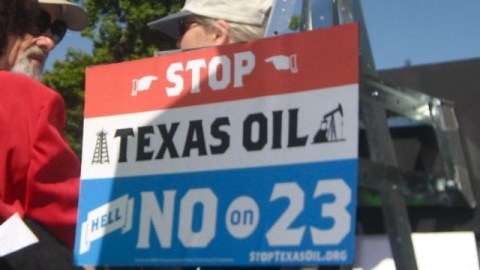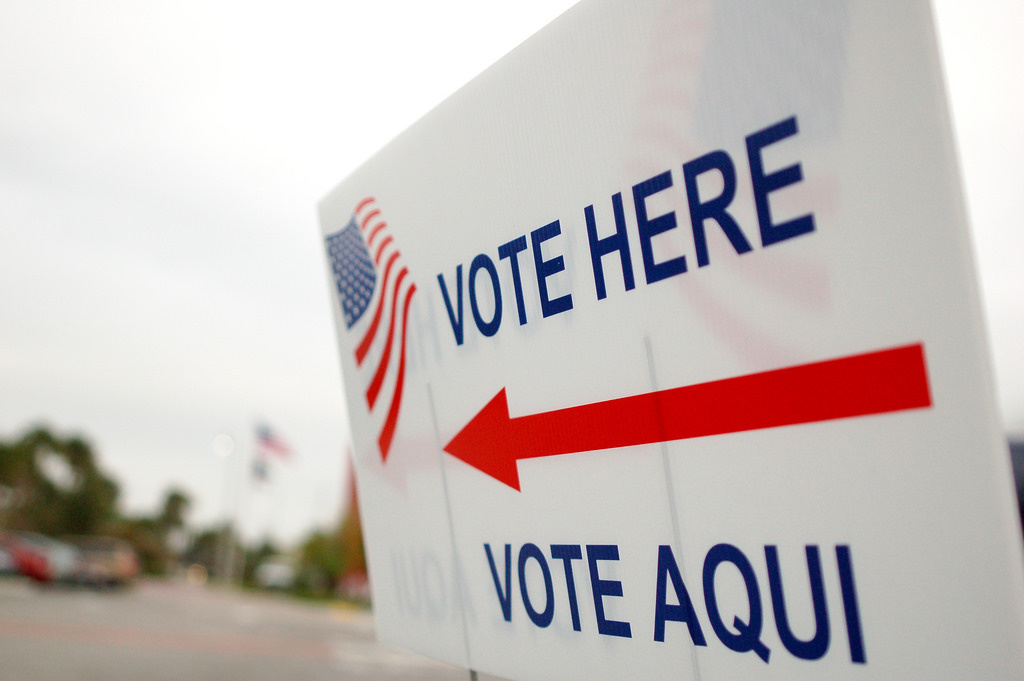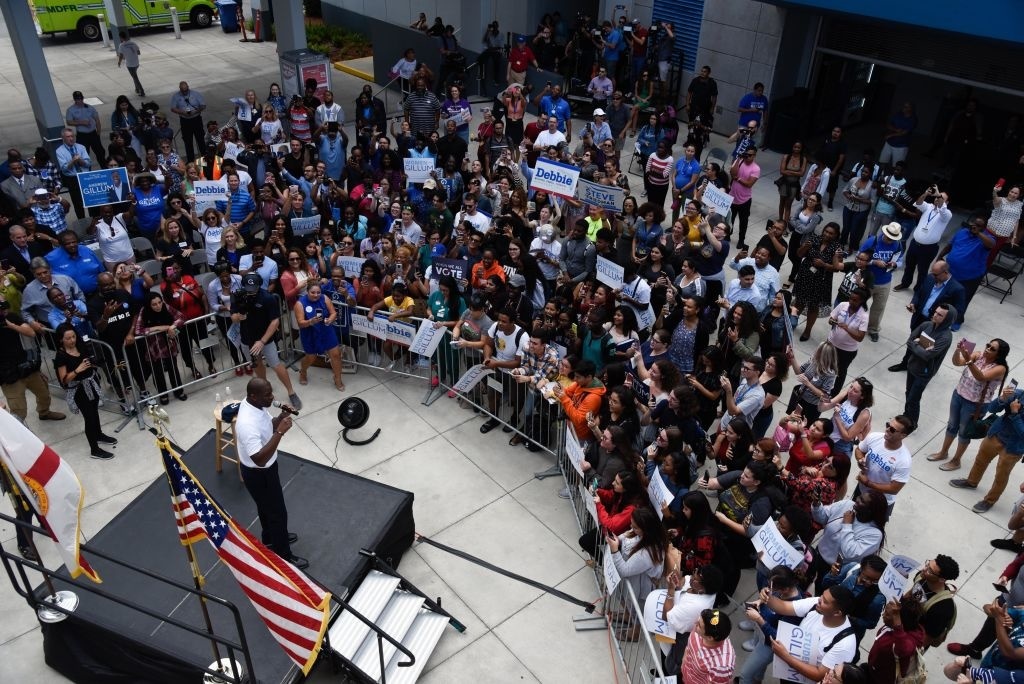Calif. Prop 23: Greens Outspend Big Oil 3-1 in Winning First Ever Public Vote on Climate Policy

In the wake of the Midterm elections, perhaps overlooked has been the defeat of California’s Proposition 23, an oil-industry backed measure that would have overturned the state’s legislation limiting greenhouse gas emissions.
Environmentalists opposed to Prop. 23 were originally portrayed in news reports–and in their own words–as Davids fighting Goliath, out-gunned and out-resourced by oil companies. Yet Greens outspent Big Oil $30 million to $10 million, and defeated the measure 61% to 39%, drawing considerable support among Republican voters in the state.
The “No on Prop. 23” campaign not only received million-dollar donations from clean energy entrepreneurs, Bill Gates, and James Cameron, but in a sign of their considerable financial might, national environmental groups contributed close to $10 million in their own funds to defeat the measure, matching nearly dollar-for-dollar the spending of oil companies. The resources allowed Greens to put together perhaps the most effective environmental campaign in history, not only fielding significant television advertising but directing a ground campaign and turn-out-the-vote initiative that also likely substantially benefited Democratic candidates across the state.
Here’s perhaps the best round up on the campaign, from the National Journal:
In most campaigns where climate legislation is an issue, oil and industry interests easily outspend green groups and cap-and-trade backers. Not so in California, home of a burgeoning clean-tech industry that has thrived under favorable state policies such as stiff requirements on utilities to purchase renewable energy. This summer, as executives at Google, Cisco, Pacific Gas and Electric, and hundreds of Silicon Valley companies saw the oil companies gaining ground in the Prop 23 campaign, they banded together to fight back—and raised $30 million, compared with the oil industry’s $10 million. Most of that money came from billionaires whose companies have profited handsomely from clean-tech investments, including $5 million from hedge-fund manager Thomas Steyer, founder of the TomKat Center for Sustainable Energy at Stanford University; $2 million from clean-tech venture capitalist (and prominent Al Gore backer) John Doerr; $1 million from clean-tech venture capitalist and Sun Microsystems cofounder Vinod Khosla; $1 million from Intel cofounder Gordon Moore; and $700,000 from Microsoft cofounder Bill Gates.
That money allowed the “No on 23” campaign to double down on ads and back them up with grassroots campaigning and canvassing—an unusual extra step for a ballot initiative. The “No on 23” campaign stressed two key themes: the threat of Texas oil companies telling Californians how to run their economy, and the threat of losing clean-tech jobs. In a typical TV spot, the voice-over intoned the theme: “Two Texas oil companies have a deceptive scheme to take us backwards … and threaten hundreds of thousands of California’s jobs.
Also, see the round-up from the Los Angeles Times:
The independent Texas-based refiners, Valero Energy Corp. and Tesoro Corp., which launched the initiative along with the California Manufacturers and Technology Assn. and the Howard Jarvis Taxpayers Assn, were outspent 3 to 1 as $31 million poured in from venture capitalists John Doerr and Vinod Khosla, Intel‘s Gordon Moore, Microsoft‘s Bill Gates and Google’sSergey Brin, along with other wealthy California philanthropists and national conservation groups.
That campaign chest paid for TV spots that framed the debate as Texas vs. California, even though Valero and Tesoro operate refineries in Wilmington and Benicia.
Equally important were the 3,200 volunteers, 2.8 million phone calls, 3.4 million pieces of mail, 379,676 on-campus contacts with college students, and a computerized outreach program that identified and contacted 481,000 voters and showered voters with get-out-the vote calls and text messages in the last three days. Political observers say it was the broadest and most sophisticated field operation ever mounted over an environmental issue.
Well-defined constituencies were targeted. Latinos were wooed by actor Edward James Olmos, union leader Dolores Huerta and Spanish-speaking activists at their doors. CREDO Mobile, a San Francisco phone company known for endorsing liberal causes, recruited its subscribers to work phone banks and picket Valero gas stations. Robo-calls from Sally Bingham, a San Francisco Episcopal minister, went out to Protestant women older than 55.
The California League of Conservation Voters identified green-leaning but infrequent voters. The Sierra Club got 84,000 onto conference calls. The American Lung Assn. rallied 60 hospitals and health groups to contact their employees and members. And a score of unions worked on the ground.
Unlike the national arena, where the GOP is closely allied with the oil and coal industry in fighting greenhouse-gas regulation, California environmentalists benefited from bipartisan support. Gov. Arnold Schwarzenegger, who sees the 2006 climate law as his signature achievement, attacked “the dirty oil hearts” of Proposition 23 backers. George P. Shultz, secretary of State under Ronald Reagan, served as co-chair of the No on 26 campaign.
Shultz made the case to fellow Republicans and business leaders that dependence on oil is a national security issue because of terrorism and the economic risks from price spikes. “What do we do with this victory?” he asked rhetorically in a news conference Wednesday. “We need to wake up our fellow Republicans.”
See Also:
Calif. Prop. 23: Greens Turn to Public Health Message to Mobilize Latino Voters





